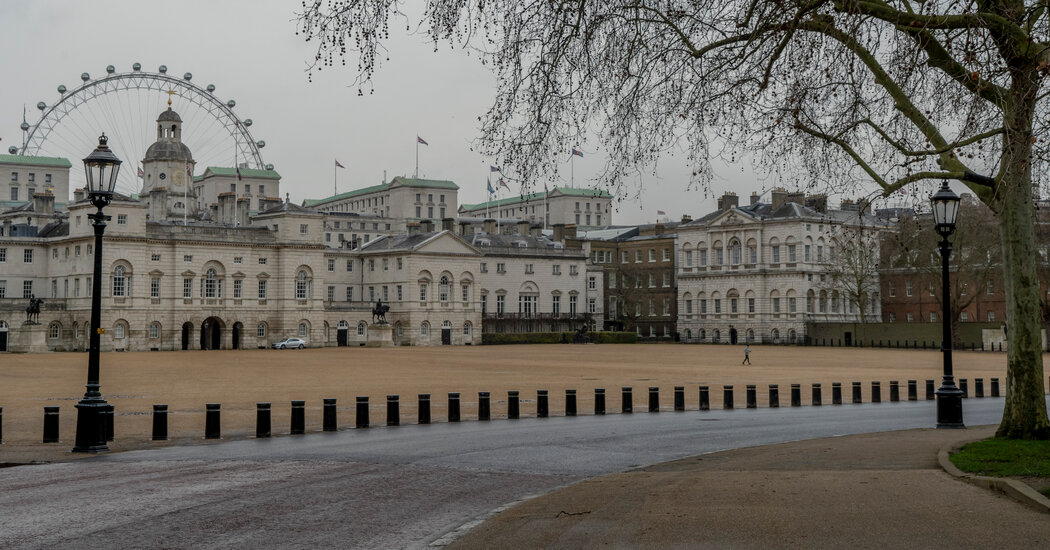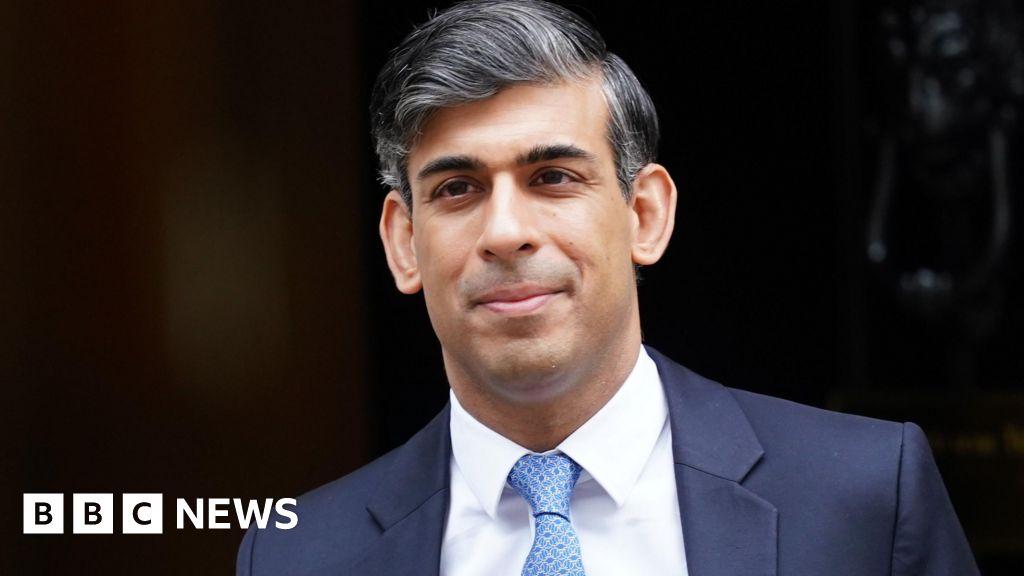LONDON – Months ago, Prime Minister Boris Johnson was whipped by the forces of the pandemic, trapped among the opposition that accuses him To act too late And legislators in his party who He complained that he had gone too far In closing the British economy to curb the spread of the Coronavirus.
On Wednesday, however, Johnson went to Parliament with some of his toughest measures yet, and violent backseats in the room were quiet. The public health crisis now facing Britain is so tragic that it has temporarily halted the political debates that have raged since the virus first appeared in the country 11 months ago.
Mr Johnson won overwhelming approval of the legislation to impose a new national lockdown, which he said could remain in effect until March 31, although some measures could be relaxed before then.
„As was the case last spring, our exit from the lockdown cocoon will not be a big blast, but rather a gradual jaw,” Mr. Johnson declared in Parliament, adding that the government would lift restrictions „if it is no longer necessary to limit the transmission of the virus.”
Opposition Labor Party leader, Keir Starmer, threw his party’s support behind the measures, only regretting that Mr Johnson did not move any faster. Mr. Starmer described the current period as „the darkest moments of the epidemic”.
The latest statistics prove his characterization. Britain recorded a record 62,322 injuries on Wednesday, the second day in a row that record numbers of new cases were recorded, and 1,041 deaths, the first day that this number exceeded a thousand since April. Finally, 77,346 people have died from Coronavirus in Britain, the highest number of deaths in Europe.
Even more frightening than the total numbers are the per capita statistics: One person in 50 in England contracted the virus between December 27 and January 2, according to government estimates. In London, the epicenter of the disease New fast-moving variable, One in 30 is injured.
The sense of crisis is so great that the organizers of the weekly NHS ritual applause, which began in March and lasted for 10 weeks, announced that they would resume the practice.
Some Britons were locked up indoors, as days got cold, and for weeks, if not months of lockdown, they clung to a vaccine light at the end of the tunnel.
„The only reason I’ve had it is because I’m dealing with going out when the sun rises,” said Chris Barclay, 36, a lawyer who lives in East London. He added that many Britons were at the end of their tie and that the government could not derail the IPO because it had its own testing and tracking system.
He said, „I don’t think people have left much in it.”
His friend, Sean McLeaney, 33, a teacher, said the task of tackling the pandemic was a „poisoned chalice,” and noted that many countries were struggling.
Britain is now embroiled in a grim race between a spike in infections and the launch of a comprehensive vaccination program. Mr Johnson reaffirmed his ambitious goal to immunize 13.9 million of the nation’s most vulnerable people – nursing home residents and everyone else over the age of 70 – by mid-February. He said protecting these people was key to removing some of these restrictions.
Johnson’s goal was reminiscent of his government’s one setback in April, when it pledged to test 100,000 people a day by the end of that month. Britain achieved this goal but immediately slipped below it in the days that followed – setting a precedent for the over-promises and underachievement that plagued its handling of the crisis.
Mr Johnson’s messy approach to reopening schools is another example. After insisting that many children return to the classroom on Monday after the winter break, Mr Johnson reversed that decision just a day later – a move that alarmed millions of parents, pupils and teachers.
On Wednesday, the beleaguered Education Minister, Gavin Williamson, announced that the government would eliminate A-levels, exams used to enroll in college, and other tests for younger students. Last summer, the government set off a firestorm when it used a computer algorithm to assign scores to students after exams It was canceled during the first shutdown.
Mr. Williamson said teachers will allocate grades this year, adding that he will „trust teachers, rather than algorithms.”
As the criticism continues to fade, the scale of the challenge has tempered criticism from within Johnson’s Conservative Party. The previous restrictions were resisted by a group of more than 50 skeptics concerned about their impact on the economy, the violation of individual freedoms and their impact on people’s mental health.
But in Parliament on Wednesday, Mr Johnson struck down complaints from a handful of conservative critics including one lawmaker, Desmond Swain, who complained that the coronavirus restrictions represented „trivial malice,” a description designed to underscore the petty nature of the rules.
Sadly but not upset, Johnson replied, „Yes, sly, no.”
With th A new type of virus Bringing British hospitals close to breaking point, there is limited appetite for rebellion, even among the more hawkish Conservative skeptics.
„They are quiet in the short term, and their criticism has been overwhelmed by events,” said Stephen Fielding, professor of political history at the University of Nottingham. „Right now, he has a free hand thanks to the epidemic.”
“We are in the same region as WWII in terms of logistical challenges facing the government. This is a crisis, there are no two ways around it, and it will get worse before it gets better,” added Mr. Fielding.
While Mr Johnson’s personal rankings have suffered during the course of the pandemic, polls generally put the Conservatives at a high level with Labor, despite multiple setbacks over the past nine months.
Despite all the accusations of indecision and policy implications, Mr Johnson’s domestic criticism was generally muted with hopes based on an effective vaccine rollout. Indeed, there is much complaint within the Labor Party ranks about Mr Starmer’s adaptive approach.
The Labor leader has spent months systematically exposing the government’s failures, building the case that he would be a more efficient leader. But he is also cognizant of the risk of being seen as playing party politics during a pandemic when most voters have limited tolerance for political bickering.
“Within the Labor Party, there is a quiet frustration with its approach,” said Mr. Fielding. „Obviously he’s been successful, but for some party members, now is the time to put the knife on and he doesn’t seem ready to do it.”
Isabella Kwai contributed reporting.

„Zombių evangelistas. Mąstytojas. Aistringas kūrėjas. Apdovanojimų pelnęs interneto fanatikas. Nepagydomas interneto fanatikas”.






